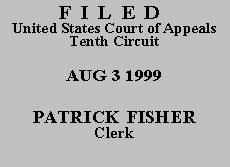

| MILDRED C. SLOAN,
Plaintiff-Appellant, v. KENNETH S. APFEL, Commissioner, Social Security Administration, Defendant-Appellee. |
|
This is the second time the denial of plaintiff's application for disability insurance benefits has come before this court. Our order and judgment filed on July 7, 1994, detailed the circumstances surrounding plaintiff's application, her medical history, and the medical and non-medical evidence, Sloan v. Shalala, No. 93-6314, 1994 WL 325416 (10th Cir. July 7, 1994), and we will not repeat those details here. We previously reversed the district court's affirmance of the Commissioner's denial of benefits and remanded the case with instructions to remand to the Commissioner for proper evaluation of various medical opinions, particularly the opinions of Dr. Evans. The ALJ, upon the Appeals Council's remand, took additional evidence and conducted supplementary hearings, and once again denied plaintiff's application for disability benefits at step five of the sequential evaluation, see Williams v. Bowen, 844 F.2d 748, 750-52 (10th Cir. 1988). That denial became the final decision of the Commissioner when the Appeals Council declined to assume jurisdiction. Plaintiff again appealed the denial of benefits, and the district court adopted the magistrate judge's findings and recommendation and affirmed the Commissioner's decision.
Plaintiff appeals the district court's affirmance of the Commissioner's denial of her application. She argues that the Commissioner applied incorrect legal standards in that he failed to properly weigh and consider her treating physician's opinion that she is totally disabled. We review the record to determine whether substantial evidence supports the Commissioner's decision and whether he correctly applied the applicable legal standards. See James v. Chater, 96 F.3d 1341, 1342 (10th Cir. 1996). We affirm.
Plaintiff argues that, after our remand on this issue, the ALJ improperly found that Dr. Evans was not plaintiff's treating physician and that he erred in not according Dr. Evans' opinion, as a treating physician, more weight than the other physicians' opinions. We need not determine whether the ALJ was correct in finding that Dr. Evans was not "a 'treating physician' as used in the rules." Appellant's App. Vol. I at 50. Regardless of whether the ALJ considered Dr. Evans a treating physician, the ALJ did apply the proper legal standards and analysis relative to a treating physician in deciding that Dr. Evans' opinion was entitled to no more weight as a treating physician than the other physicians' opinions. In our remand, we directed that the Commissioner should consider and apply the factors set forth in 20 C.F.R. § 404.1527(d), which he did. See also Goatcher v. Department of Health & Human Servs., 52 F.3d 288, 290 (10th Cir. 1995).
In applying the correct legal standards and analysis, the ALJ found that Dr. Evans saw plaintiff five times at the behest of plaintiff's attorney and that the visits were more in the nature of evaluations for litigation purposes than for treatment. The ALJ also found that Dr. Evans' ultimate statement that plaintiff was totally disabled was inconsistent with the objective medical evidence resulting from his evaluations. Further, one of Dr. Evans' written opinions was that plaintiff was disabled to the extent that she could no longer perform her past work. This opinion was consistent with the ALJ's finding that, although plaintiff could no longer perform her past work, she retained the residual functional capacity to perform other work available in the national economy. In addition to being internally inconsistent with his own medical and testimonial evidence, Dr. Evans' opinion of total disability was inconsistent with the objective medical evidence and the opinions of other physicians. Finally, the ALJ recognized that Dr. Evans was an orthopedic specialist, as was Dr. McCown, who originally treated plaintiff when she suffered the injuries to her back and knee and who released her to return to work.
The Commissioner applied the correct legal standards in this case, and the record contains substantial evidence supporting his decision. Consequently, we AFFIRM the district court's judgment.
Entered for the Court
Circuit Judge
*. This order and judgment is not binding precedent, except under the doctrines of law of the case, res judicata, and collateral estoppel. The court generally disfavors the citation of orders and judgments; nevertheless, an order and judgment may be cited under the terms and conditions of 10th Cir. R. 36.3.
**. Honorable Wesley E. Brown, Senior District Judge, United States District Court for the District of Kansas, sitting by designation.